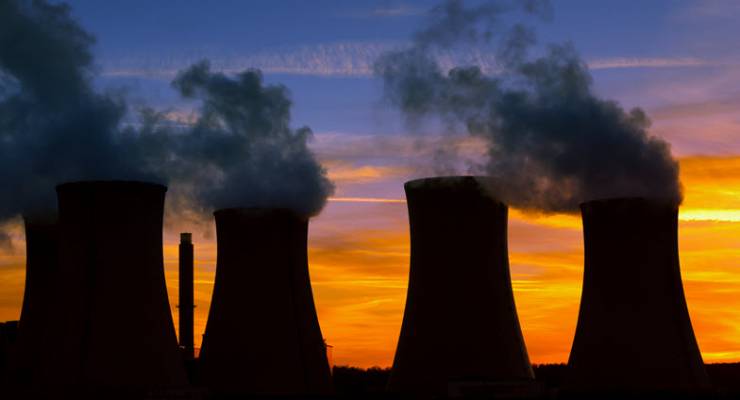
Things aren’t looking too radiant for the uranium industry and its assorted spruikers — including the George Monbiot types on the left who think nukes are the only solution to climate change. The new Flamanville nuclear reactor that has been under construction for years at the very northwestern tip of France is facing new delays and higher costs.
We’ve been reporting on delays and cost blowouts at Flamanville for nearly nine years so the news of more isn’t especially surprising.
In April, French power giant EDF said that problems with the welding at the site might have an impact on the costs and the schedule for starting the nuclear reactor. On Wednesday, the company confirmed that 33 of 148 inspected welds showed quality defects and needed to be repaired. As a result it had “adjusted the Flamanville schedule and construction costs”. It won’t start up until the fourth quarter of next year and the final cost has been revised up from €10.5 billion to €10.9 billion”, or AU$14.7 billion.
When we first reported problems at Flamanville in 2009, it was going to start in 2013 with a cost of €4.5b, up from €3.3b.
The Flamanville plant in France is one of three being built in Europe using the new European Pressurized Reactor (EPR) technology. The other two projects are the Olkiluoto project in Finland (which is more than a decade late), and the controversial Hinkley Point project in Somerset (which, based on December 2017 figures, will cost £20.3 billion (AU$36 billion) and start in 2025). Funding is still being finalised for Hinkley Point. Another EPR project in Taishan China is expected to go into full operation this year. However, there’s doubt about whether a Japanese-financed planned nuclear plant in Cumbria in the UK will go ahead. The start-up of a plant in the UAE has also been delayed.
Meantime Canadian uranium miner Cameco has laid off 500 workers and shut down the world’s largest uranium mine, McArthur River, and another mine, Key Lake, in a bid to force up prices as uranium continues to drag along at its lowest price levels since the mid-2000s.
As ever, the industry claims to be optimistic about the future of nuclear power around the world.









Crikey is committed to hosting lively discussions. Help us keep the conversation useful, interesting and welcoming. We aim to publish comments quickly in the interest of promoting robust conversation, but we’re a small team and we deploy filters to protect against legal risk. Occasionally your comment may be held up while we review, but we’re working as fast as we can to keep the conversation rolling.
The Crikey comment section is members-only content. Please subscribe to leave a comment.
The Crikey comment section is members-only content. Please login to leave a comment.